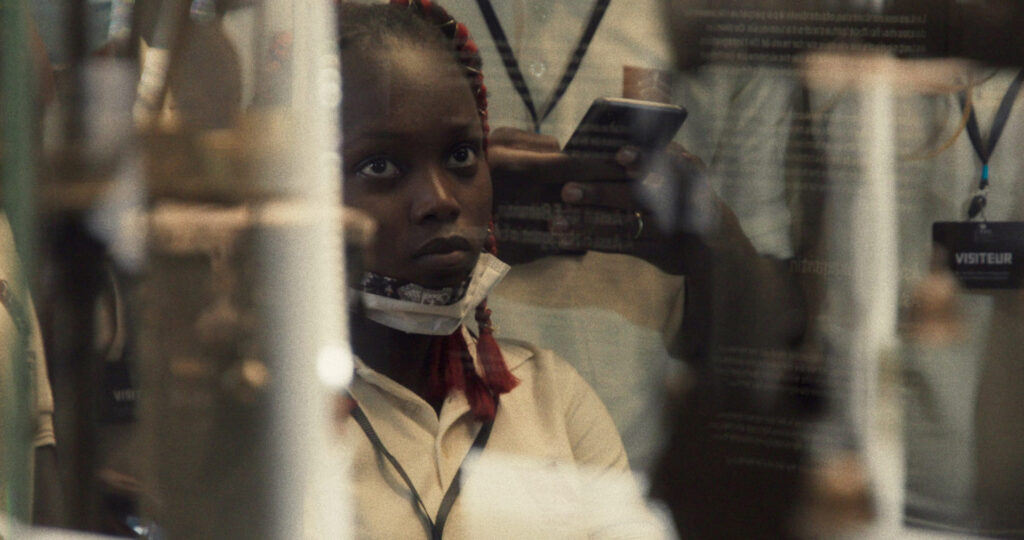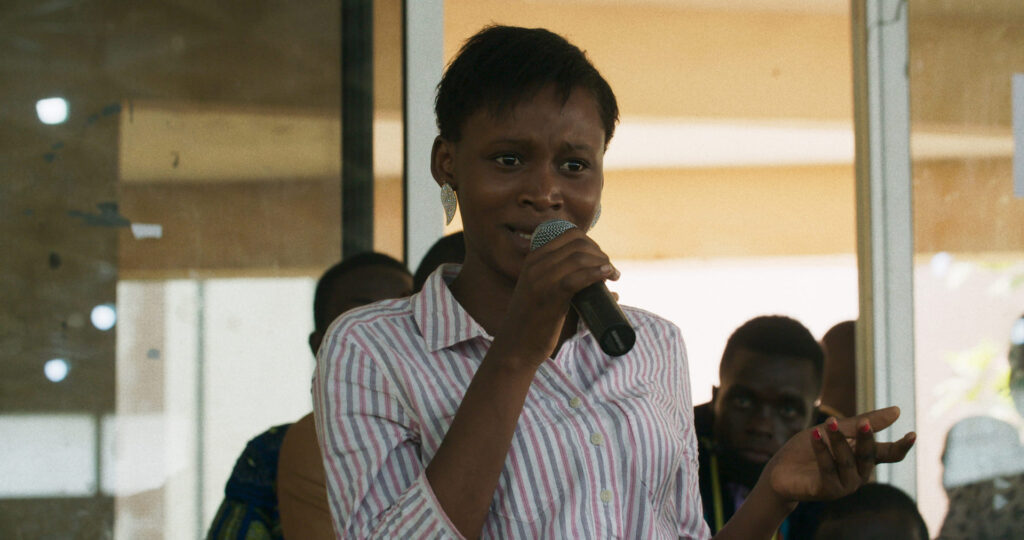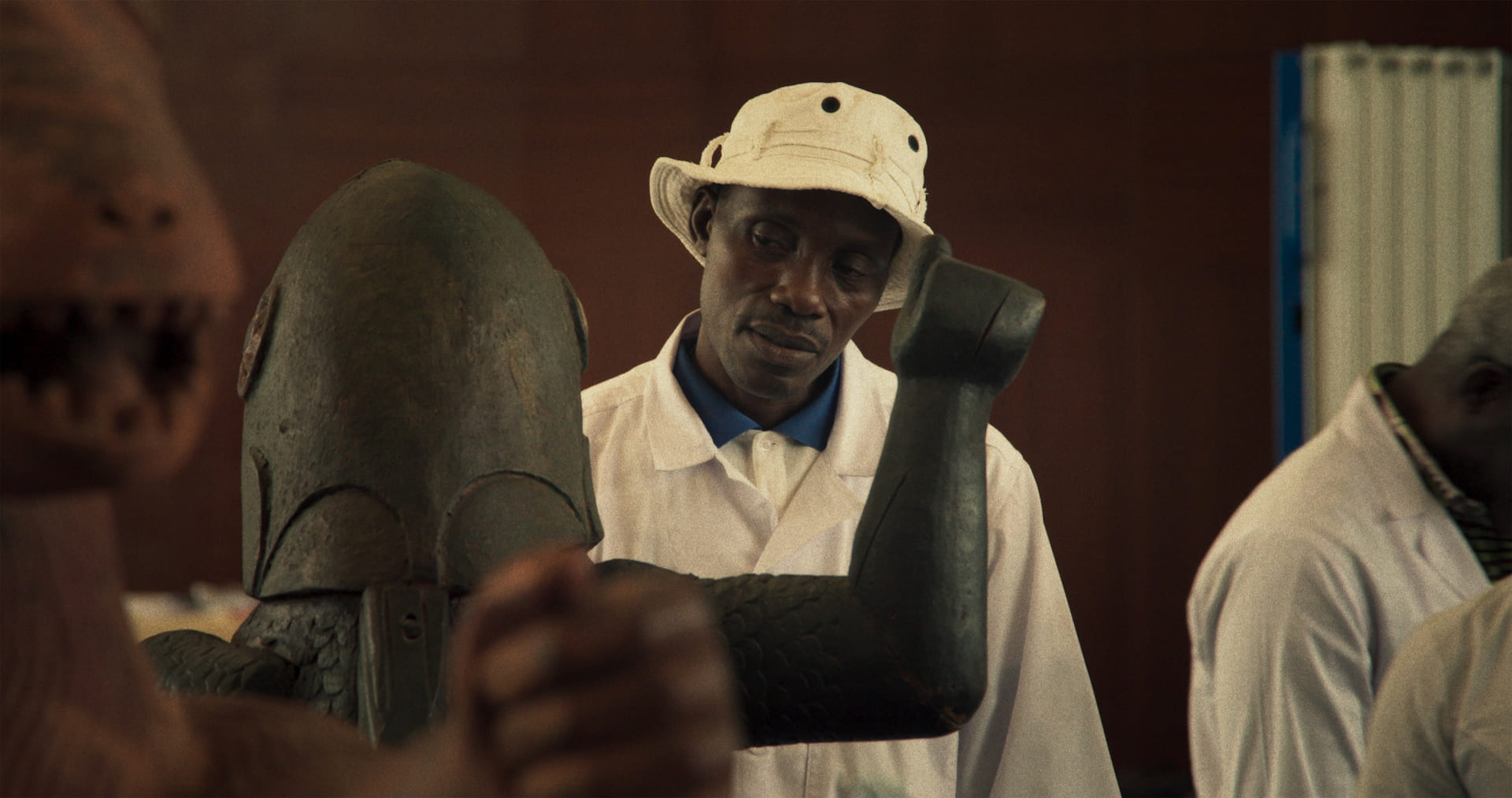Mati Diop‘s film Dahomey, winner of the Golden Bear at Berlinale, recounts the journey of 26 looted royal artifacts from the Kingdom of Dahomey, displayed in Paris and now slated for return to Benin. Written and directed by the acclaimed French-Senegalese filmmaker, the film has secured distribution in various international markets through Les Films du Losange.

With a 95% critics rating on Rotten Tomatoes, ‘Dahomey’ has garnered praise for its exploration of colonial history’s complexities, with Variety hailing it “as a slim lever that cracks open the sealed crate of colonial history, sending a hundred of its associated erasures and injustices tumbling into the light.” Alongside acquisitions by platforms like Mubi, the documentary has been picked up by distributors across continents, including Australia, China, Spain, Portugal, and more.
Set in November 2021, 26 royal treasures of the Kingdom of Dahomey are about to leave Paris to return to their country of origin, the present-day Republic of Benin. Along with thousands of others, these artefacts were plundered by French colonial troops in 1892. But what attitude to adopt to these ancestors’ homecoming in a country that had to forge ahead in their absence? The debate rages among students at the University of Abomey-Calavi.

Dahomey marked Mati Diop‘s second feature film, solidifying her position as a prominent figure in global arthouse cinema and a leading voice in contemporary African and diasporic filmmaking. She has made history by becoming the first black director to win the Golden Bear at Berlinale. Oscar-winning actress Lupita Nyong’o who was the first black person ever to preside over the festival’s Competition jury, presented Diop with the prestigious award.
Diop is no stranger to making history. In 2019, she became the first black woman to compete in the Cannes Film Festival‘s main competition, where she won the Grand Prix for her directorial debut Atlantics, a poignant tale of migration, love, and youth.

In a lengthy, and deeply emotional speech, Diop stated that the award “not only honors me, but entire visible and invisible community that the film represents.”
She continued: “The first time I imagined what a restitution might look like in reality, I first heard a sound, a frequency, something trembling like an earthquake … it was the sound of a wall collapsing, a wall of silence, a wall of denial, that each and every one of can and must together tear down. To rebuild, we must first restitute. And what does restitution mean? To do justice.” She concluded by dedicating her award to “all the women and the men who have paved the way, to those who today contribute to making our story, our history, our singular beauty and our power heard.”
Dahomey will be released in theatres in France on 25 September and will be available in North America and the UK via the streaming service Mubi in late 2024.






